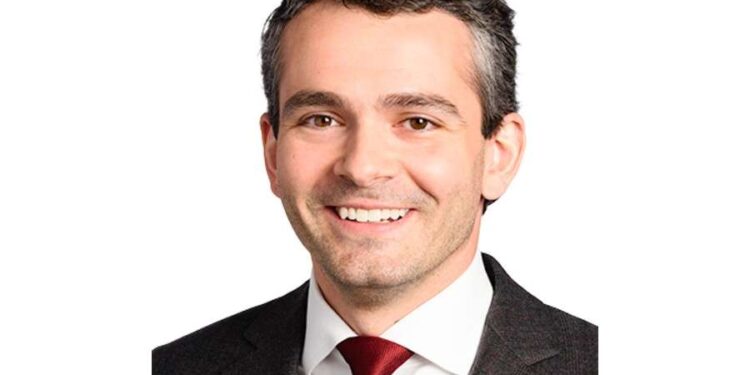.- The teachings of the Church are an “untapped resource” for Catholics to respond to problems such as abortion and gender ideology, one prominent Catholic scholar says.
“More or less the entire tradition is an untapped resource at this point,” said Ryan Anderson, the new president of the Ethics and Public Policy Center (EPPC), in an interview with CNA on Tuesday.
“America is a divided nation with lots of institutional decay. Bold witnesses to the truth and faithful living out of the truth is how we best lead the way,” he said.
In an interview with CNA, Anderson—a prominent speaker and author on marriage, sexuality, religious freedom, and natural law—offered advice for Catholics on discussing issues such as abortion and gender ideology, and pointed to saints who could serve as models for this evangelization.
The interviewed followed Anderson’s op-ed in the Wall Street Journal, where he argued that appeals to religious freedom are insufficient for success in the “culture wars.”
Religious Americans increasingly find themselves fighting coercive government mandates that violate their consciences, he noted, such as taxpayer-funded abortion or having to accept gender ideology. In these cases, many Americans appeal to their religious freedom as a defense—but they should also be seeking to bring others to their side, he said.
“We’ll have the best shot at winning fights over abortion restrictions or child sex-change procedures when conservatives are willing to assert that their beliefs are true, not merely protected in law,” Anderson said.
The “culture wars” are not merely religious, Anderson told CNA in an interview.
The Supreme Court last summer ruled in Bostock v. Clayton County that civil rights protections extend to sexual orientation and gender identity. As a result, social conflicts could arise that are not just religious, but deal with basic questions of human nature.
For instance, biological men identifying as transgender women could cite the court’s ruling to use women’s bathrooms, locker rooms, or homeless shelters despite the concerns of other women using those facilities, Anderson said. They could participate in women’s sports against the wishes of their female competitors. They could demand that a doctor help them transition, even if the doctor thinks the procedure is harmful.
These scenarios do “raise religious liberty concerns,” Anderson said, “but first and foremost they get the human person wrong—for everyone.”
As a response, Catholics must witness to the truth of the human person, he said, “proposing a more excellent way, in season and out,” than what the culture claims is true.
“This will entail basic evangelization and catechesis on theology, while also drawing from the best of biology, psychology, sociology, and philosophy” among other disciplines, he said, “to show that there is no tension between faith and reason.”
Catholics should use the “untapped resource” of Church tradition, he added, notably the writings of St. Augustine, St. Thomas Aquinas, and modern popes beginning with Pope Leo XIII.
The social teaching of modern popes “provides endless resources on a wholistic view of the human person, the family, the Church, and the proper role of the state,” Anderson said.
When asked what saints could serve as inspirations for Catholics to engage with the broader culture, Anderson responded that Pope St. John Paul II’s “clarion call to ‘be not afraid’” can galvanize Catholics, and the “philosophical foundations” of St. Thomas Aquinas “will prove essential.”
St. Phillip Neri, he added, “was known for his joy, his humor, his love of music and fellowship, and for his endless hours hearing confessions, explaining the faith, and reaching out to the those on the margins of society. This sort of joyful witness will serve us well.”
Credit: Source link


